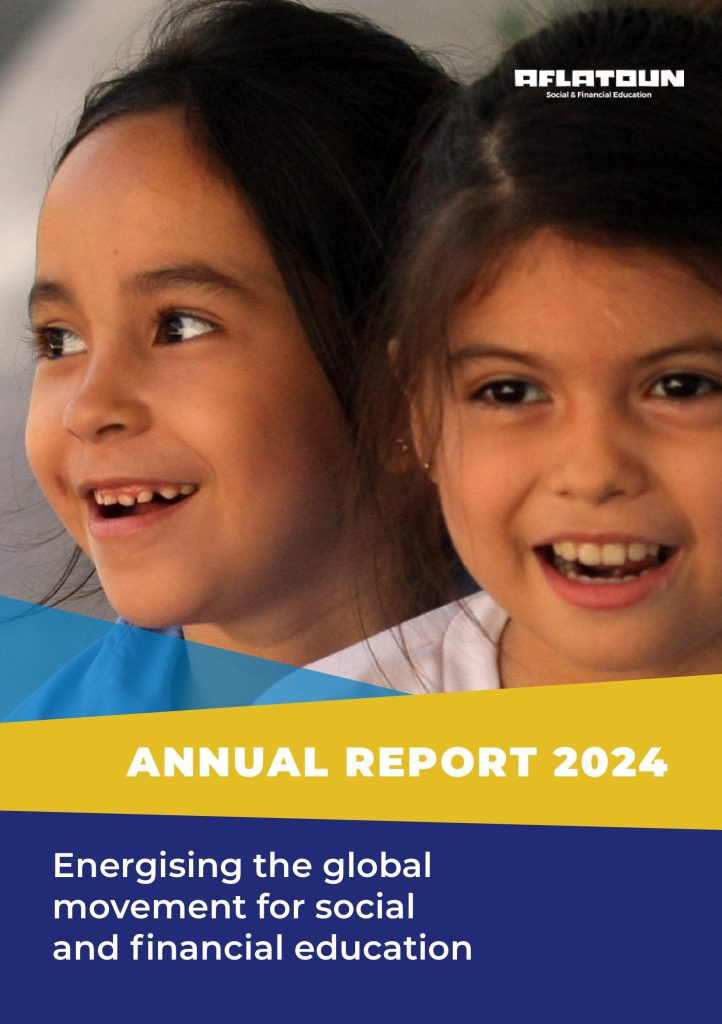International Human Solidarity Day is an annual Unity Day of the United Nations and its member states introduced by the General Assembly during the 2005 World Summit. The theme and basic purpose of the Solidarity Day are to eradicate poverty and promote the culture of cooperation, equality and social justice.
According to the United Nations, the International Human Solidarity Day is:
- a day to celebrate our unity in diversity;
- a day to remind governments to respect their commitments to international agreements;
- a day to raise public awareness of the importance of solidarity;
- a day to encourage debate on the ways to promote solidarity for the achievement of the Sustainable Development Goals including poverty eradication;
- a day of action to encourage new initiatives for poverty eradication.
On this day, Aflatoun International wants to emphasise the important work of our local partner organisations and highlight their role in challenging global poverty, social injustice and discrimination by reaching out the most vulnerable children and young people across the globe.
Aflatoun’s global network consists of hundreds of established and local grassroots organisations, NGOs and governmental institutions who collaborate with us to receive child-centred social and financial curricula that are tailored to their specific local needs and wishes. Many of these partner organisations work with the most vulnerable and marginalised children and young people.
During our recently-held online Asia Regional Meeting, we discussed the ways in which our local partners use our social and financial education programmes to reach the most vulnerable children and young people. They showed us outstanding examples of their implementation of the Aflatoun curricula, shared success stories and discussed some of the challenges and opportunities for the future.
Case of Indigenous Children in Sind Province, Pakistan
Primary Education Project Pakistan (PEP Pakistan) is a foundation dedicated to providing quality education to children and young people. Mithu Naroo, the project officer at PEP, who belongs to a marginalised community himself, joined our meeting to discuss their work in Sind Province of Pakistan. PEP Pakistan works with indigenous children who are referred to as tribal children, living in the rural areas of Sind Province. The majority of these children are extremely vulnerable: they are isolated or belong to the lowest social and economic class in the society. Naroo explained that these children and young people are ignored and remain unseen by the majority of the society in Pakistan.

PEP has introduced Aflatoun’ social and financial education programmes to almost 6.5 thousand children of the most marginalised communities in 125 village schools and trained 140 teachers. Their goal is to empower these children to become the agents of change and role models within their communities. Naroo explained that the most visible impact of Aflatoun programmes amongst the children and young people was an increase in saving habits, self-confidence, improvement in living conditions, interest in personal development and in learning about the rights.












